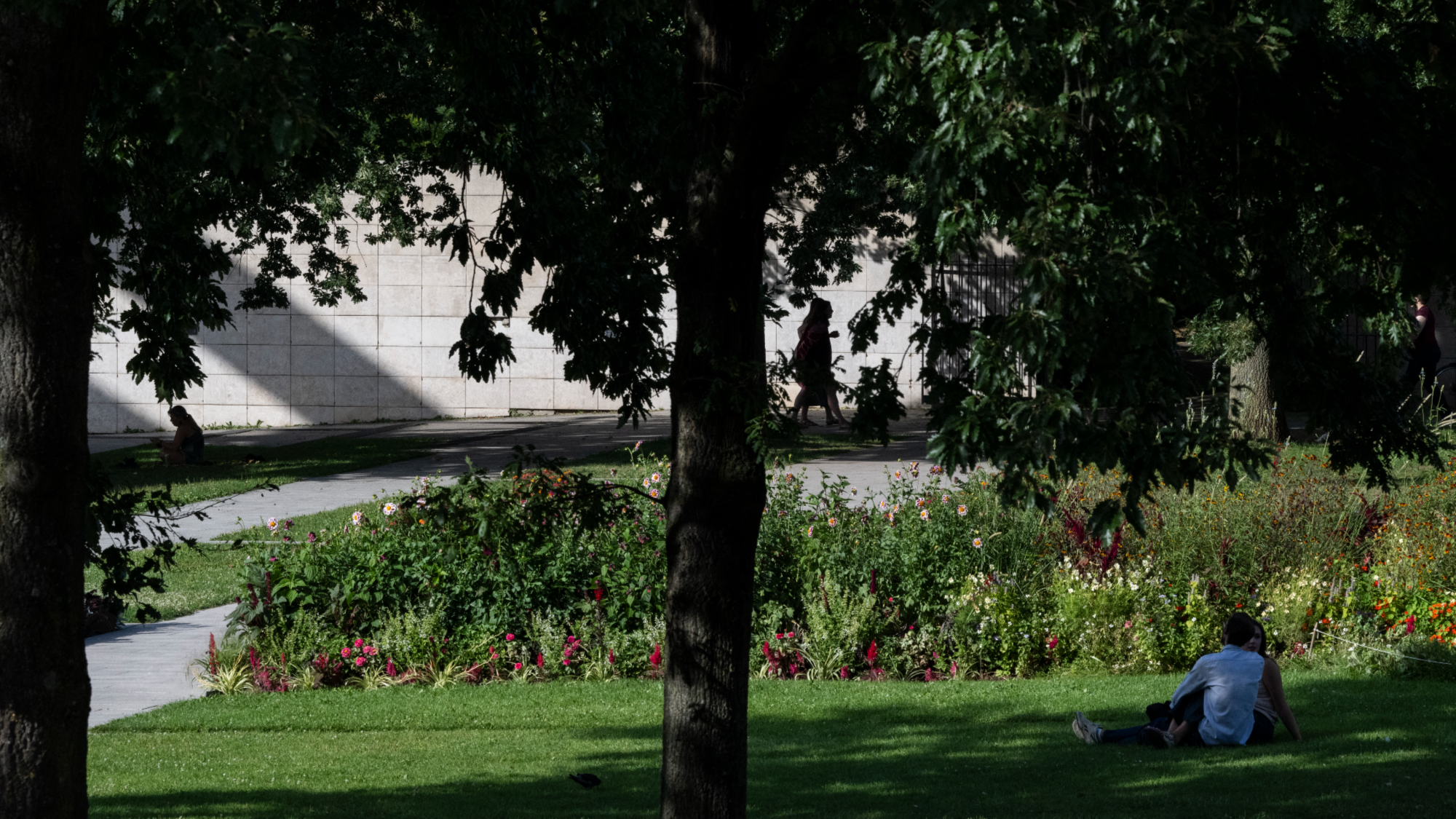
As Europe sweats through another summer of record-high temperatures, much of the continent is undergoing a rapid and often tense transformation.
Once seen as an American excess or Mediterranean necessity, air conditioning is becoming a fixture of life in places where it was long considered a luxury or even unwelcome. The shift reflects a new climate reality: Extreme heat is no longer rare across much of Europe. It’s increasingly the new norm.
Europe might not be prepared to cope. Power grids — many designed for milder climates — are already under strain. On the hottest days, electricity demand spikes and often outpaces what renewables can supply. Governments are now facing a tough question: how to keep their countries cool without driving up emissions or triggering blackouts.
READ MORE: Brutal summer heat wave has Europe sweating on its future
The evolution is apparent in France’s Médoc region, where the city of Bordeaux hit a record-high 41.6C (106.9F) this week. Historic buildings like the Château Monbrison — a centuries-old wine estate — have been forced to adapt.
This spring, the owners installed air conditioning — discreet Mitsubishi Compact+ units mounted against the exposed stone walls to preserve the château’s traditional charm.
The trend tracks across Europe. Cooling systems, once reserved for the most scorched parts of Italy and Spain, are an increasingly common sight further north, in places like the Netherlands and the UK.
Residential AC purchases have doubled in Europe since 2010, according to Daikin Industries Ltd, one of the continent’s biggest manufacturers. Electronics marketplace Galaxus recently reported record sales in Germany and Austria, and Samsung Electronics Co is boosting its training budget in Europe for AC installations by an average of 10 percent each year.
France has now overtaken Italy and Spain as the fastest-growing air conditioning market in Europe for Hitachi. Household AC penetration there rose to 25 percent by 2020, from 14 percent in 2016, the company said. By 2035, about half of French homes are expected to have a unit.
The boom in business is anchored by a troubling fact: Europe is warming at twice the global average. Cooling degree days — or how often and how intensely buildings require cooling — have more than tripled in Paris over the past two decades, according to data from Eurostat. France’s capital now experiences heat comparable to Barcelona in the late 1990s. Berlin’s temperatures mirror those historically recorded in Turin. And the climate in Brussels resembles what parts of Croatia were like 25 years ago.
Even countries long considered too cold for cooling are changing their ways. The market for air conditioning in Scandinavia, once tiny, is registering measurable growth.
“Cooling used to be a luxury,” said Simon Pezzutto, a researcher who has tracked cooling demand in Europe for over a decade. Today, “it’s a commodity of primary necessity.”
Governments are searching for a path forward. Austria’s latest national energy plan explicitly cites rising cooling demand as a risk to grid stability. France, too, has warned of future peaks during the summer because of unchecked AC use. These aren’t theoretical concerns. As a heat wave gripped southern Europe in June, electricity grids in Italy buckled, leading to blackouts in several regions.
“That synchronized spike in demand — sometimes compressed into a matter of hours — puts immense pressure on national grids,” said Isabella Nardini, Manager of International Affairs at the Fraunhofer Research Institution for Energy Infrastructures and Geotechnologies.
Part of the problem relates to consumer preferences. Many shoppers are opting for small, portable units, which are more affordable and easy to install, but less energy-efficient than other models.
Globally, the International Energy Agency (IEA) says that space cooling already accounts for 10 percent of electricity consumption in buildings, and Europe’s share is only expected to rise. In response, fossil fuel plants — especially gas and coal — are increasingly fired up to meet surging demand.
“Rising air conditioning use is propping up fossil fuel generation during times when renewables underperform,” said Sabrina Kernbichler, lead power analyst at Energy Aspects.
Even if Europe’s needs are met, adapting the continent’s aging building stock poses another logistical challenge. Many older homes were designed to retain heat. That’s an advantage in winter, but a problem in today’s longer, hotter summers. Every year, only about 1 percent of buildings are renovated.
“In dense cities, this is even harder,” said Nardini. “You have limited space for condenser units, and when they’re all packed together, they make the urban heat island effect worse.”
Because ACs expel heat, they can contribute to elevated temperatures well past midnight, making it harder for people to sleep and recover.
But adjusting to new cooling demands isn’t just about policy or infrastructure. It also runs up against cultural barriers. Historically, Europe’s opposition to air conditioning has been tied not simply to cost, but to aesthetics, noise and environmental impact.

In June, after France proposed curbing the uncontrolled spread of air conditioning, citing sustainability concerns, the politician Marine Le Pen accused elites of expecting ordinary people to suffer. “Leaders have decided that the French should suffer from the heat while they themselves obviously enjoy air conditioned vehicles and offices,” she wrote on X.
A middle path may exist. Daikin Europe, for instance, is designing products for the local market that incorporate touches like quieter fans, according to Yeliz Yener Minareci, section manager for residential business units.
And while resistance to air conditioning remains strong in many parts of Europe, she said attitudes are still broadly softening, especially within younger generations. As heat waves become more frequent and severe, lack of cooling is increasingly seen as a public health risk that affects productivity in workplaces, schools and homes.
READ MORE: Extreme heat waves spark climate emergencies worldwide
“In Europe, the most important thing is that the product needs to be sustainable over the whole life cycle,” Minareci said.
When Amadej Petan, 27, a project manager in Paris, bought his first AC in June, he was conscious of choosing a less-polluting model. A tipping point was simply the need to work without constant disruptions from the scorching weather.
“I feel like every summer is getting hotter,” he said. “In order to work and live comfortably in my small apartment, I needed to have an AC.”


